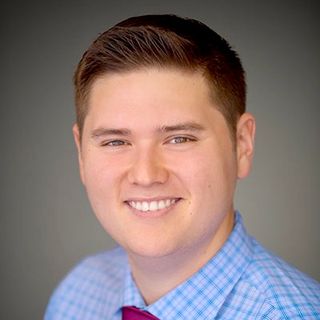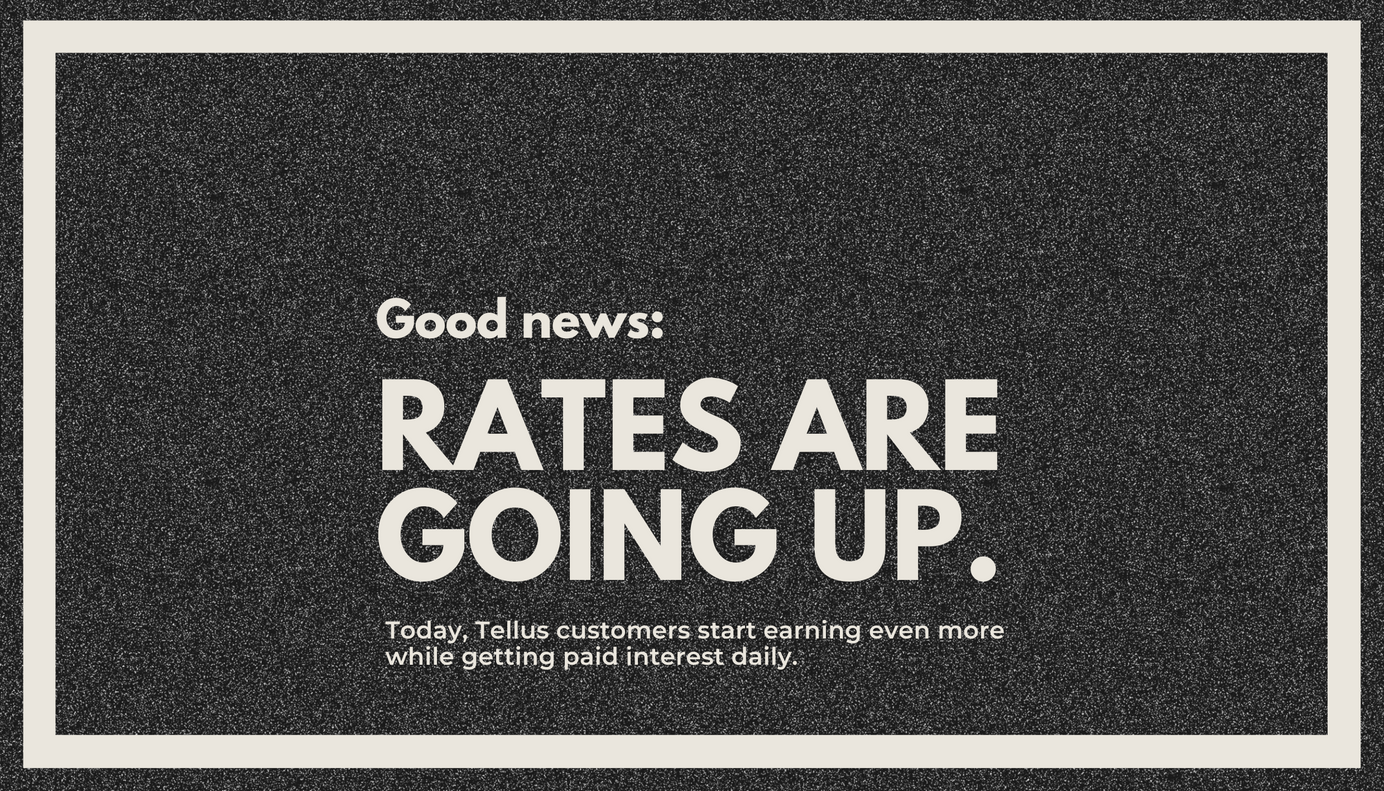
Talk to Tellus: How We Grow Wealth | Stock Market Alternatives
In an effort to showcase the many ways there are to acquire wealth, we searched internally for some unique stories to share. We asked 3 of our team members the same 3 questions about building their wealth, and have recorded their answers to share.
At Tellus, we strive to bring wealth to everyday professionals. In an effort to showcase the many ways there are to acquire wealth, we searched internally for some unique stories to share. We asked 3 of our team members the same 3 questions about building their wealth, and have recorded their answers to share.
Meet Michael:
Michael is the creative mind behind many of Tellus’ marketing efforts and supervises various projects at once. He joined the team about a year ago and is our Associate Product Marketing Manager. He is 24 years old and has an estimated net worth of $150K.
What has your experience been like in acquiring/managing wealth?
I really became interested in personal finance in high school because I noticed that when people had access to money they had more freedom and choices than they otherwise would. For me, this began by learning everything I could about real estate investing until I was able to purchase my first rental property last year. The biggest obstacle has definitely been just saving enough money to make that initial purchase, but they say the first $100k is the most difficult! Hopefully, now I’ll be able to leverage what I already have to continue building wealth more easily.
What has been your biggest regret to date relating to acquiring/managing wealth? What did you learn from it?
My biggest financial regret would be taking out student loans for college. While I do believe that college was an overall very positive experience, I hate owing anyone anything. Fortunately, I was able to work in the residence halls on campus as a Resident Advisor which granted me free room and board as well as a paycheck that I saved and eventually used to repay all my loans before graduation. I was lucky to avoid accruing any interest on my loans, but it taught me the importance of creating a long-term plan to accomplish my goals.
What advice would you give to someone in their early/mid career to help them gain financial success?
The biggest piece of advice I can offer to someone in their early 20’s is to continue investing in yourself. Educate yourself about finance by reading popular books like Rich Dad Poor Dad, Richest Man in Babylon, and The Simple Path to Wealth. You should also be making clear goals for yourself, writing them down, and holding yourself accountable. Oftentimes, people resist intentional goal setting for fear of failure, but I’ve realized that even when you fall short of a goal, you will always be better off just by having pursued it in the first place. Imagine the person that you want to be in five, ten, or twenty years from now, and then ask yourself what that person must have done to become successful. Then, simply take action on those things and adjust your path as you learn and grow.
Meet Jim:
Jim is a master of all data. As the VP of Finance and Operations, he brings the analytics to the table and presents us with the information that we need to make key decisions. Jim is 29 years old with an estimated net worth of $100K.
What has your experience been like in acquiring/managing wealth?
I don’t actively manage my wealth and am also fairly risk-averse. Overall, I prefer to set and forget my money in low risk passive income products. I am not invested in the stock market and if I were to place funds into riskier asset classes, I would invest in real estate because that is an asset class I am more familiar with given my past professional experiences. Instead of focusing my time on investing, I focused on my professional career and actively controlling my spending. I’ve been doing this since I first started working out of college and I remember having conversations with my colleagues about how they were struggling to save money to build their nest egg. This came as a surprise for me. We were at similar points in our careers but yet I had built up 3-4x more in savings and was able to afford the costs of graduate school. An example of my active saving choice is that I often try to spend less than five dollars a day on food while I listen to my colleagues complain that lunch alone would cost them north of twenty dollars. My long-term goal is to build up enough wealth to start investing directly into real estate assets where I am able to passively collect income while hopefully gaining in the long-term from asset appreciation as well.
What has been your biggest regret to date relating to acquiring/managing wealth? What did you learn from it?
I hopped on the cryptocurrency bandwagon with some friends and would constantly be watching the markets to actively trade. As a result, I would wake up in the middle of the night in a cold sweat to check crypto prices. This was not healthy for me mentally and was a significant deviation from my past behaviors. Furthermore, I was not enjoying trading as it did not provide me with the same kind of mental stimulation and fulfillment that school or work had provided.
What advice would you give to someone in their early/mid career to help them gain financial success?
I would focus on your spending habits and invest in yourself and your education. You may gain an absurd amount of wealth overnight through sheer luck, but to maintain that wealth the rest of your life or through future generations takes discipline and patience.
Meet JJ:
JJ brings cohesion and expertise to the entire team and works everyday to grow the company’s presence as a top WealthTech/PropTech player. He is one of our C-level executives and has acquired a net worth in the millions.
What has your experience been like in acquiring/managing wealth?
For me acquiring wealth and managing it has definitely come in fits and starts. Both the acquisition of the wealth/assets themselves and the experience as well. I grew up poor. Single parent, broken home, so I did not have a natural background or education in financial matters when I was starting off. I feel very lucky to have fallen into the financial world the way I did. Despite getting my degree in computer science and being generally headed for a technical career path, my first “real job” was as a “financial advisor” with a bulge bracket broker dealer. I really wasn’t advising anybody on their finances, rather I was a salesperson - Smiling, Dialing, “Little old lady, do you want to buy some stocks?” - But the real world education that I received in getting that job, having that job - it impacted me at every level. It provided that foundation so I could understand, really, what it meant to save and invest. It gave me a detailed understanding of things like the Power of Compounding. It showed me how high I could aspire to go with my own finances and how far away that was from where I was at. And - beyond learning that I am not a natural salesperson - that was hard work; I also opened my first retirement account, a self-directed IRA, I purchased my first shares of stock (Texas Instruments). That first real job sent me down a path at the intersection of financial services and technology that I am still thriving in today. Ever since then the majority of my saving and investing has been centered on the financial markets. Things like alternative assets, things like real estate, they all came later for me, building on top of that foundation. I am lucky and grateful to have it.
What has been your biggest regret to date relating to acquiring/managing wealth? What did you learn from it?
There have been times in my life where I’ve done some pretty objectively financially foolish things. Times when as an entrepreneur, I’ve lived for months borrowing from credit cards; lived without any real income - for myself or my family; times when we’ve taken foolish risks like not having enough health insurance or life insurance to adequately protect my family the way that I should have. But - for all those things that I’ve done wrong along the way, I can’t say that I really regret them, because they’re part of the journey that got me to where I am at today. If I didn’t have those entrepreneurial challenges and failures along the way, would I have learned the same lessons? Without those lessons, would I have ultimately had the same successes? Probably not. More than anything I’ve learned to be appreciative - appreciative of all the great people that I’ve had around me that helped me achieve impactful things, create meaningful and lasting impact. Today, I am appreciative of the difficult times because they teach important lessons; appreciative of the fact that dumb luck and coincidental timing sometimes come your way and how important it is to seize the moment and act quickly when that happens.
What advice would you give to someone in their early/mid career to help them gain financial success?
Early in your career is the best time to take risks, challenge yourself, and learn like no other. When you don’t yet have the obligations of a mortgage or a family that is depending on your paycheck to help put food on the table. Early in your career is the time to roll the dice and learn those hard lessons that will last for a lifetime, because time is on your side. Time to grow, time to pivot, time to compound your savings, time to ride out ups and downs. Time to take your lumps and cut your losses and know that you still have years to grow a solid future. Time to be confident that even if a small percentage of the seeds that you plant today sprout, you’re in for a dazzling future.
Final Thoughts
After interviewing my team members, I had some shocking realizations. While I thought that the process of building wealth would be fairly linear (with more age bringing more wealth), that was not always the case. Michael, who had been very money-conscious from a young age, was able to set tremendous goals and achieve them in his early twenties. This set him up for years of passive income via his rental property. Jim, who had different priorities, decided to focus on other aspects of his life and let his money grow in a fairly hands-off approach. JJ, on the other hand, killed 2 birds with 1 stone right off the bat. His career in the financial industry allowed him to make his income as well as build up the knowledge base that he needed to grow his wealth.
All of which to say, there are infinite ways to grow wealth and no one way is better than the other. One of the biggest similarities in all of these perspectives is the awareness of risk tolerance. Each person had to assess how risk averse they were, and make their decisions accordingly. This is just one key to building wealth. As a team working in the financial services industry, we work on Tellus to accommodate all paths and assist people to grow their returns. To learn more about how we can help, visit https://www.tellusapp.com/invest/.









